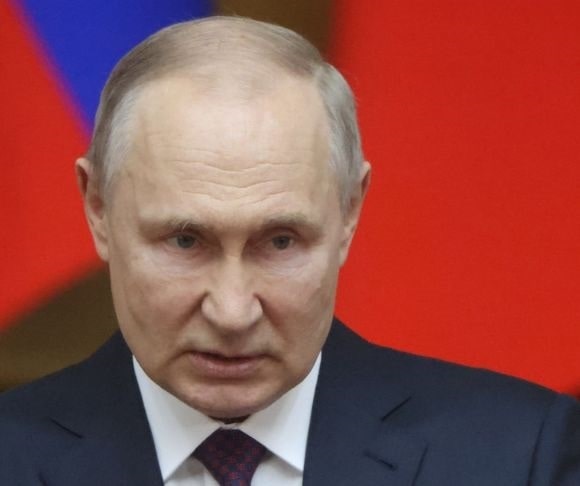Global geopolitics is roiling as the Chinese-Russian collaboration intensifies, posing a threat to Europe and the Indo-Pacific. The expanding military alliance between two adversaries of the United States and its allies is more than troubling. Beijing’s attempts to be peacemaker in Russia’s war on Ukraine complicate US and European efforts to support Kyiv, and such a diplomatic move is evidence that the Chinese Communist Party (CCP) intends to play a significant role in European national relationships.
Beijing’s state-run propaganda service pointed out that the Chinese government would be sending an envoy to Ukraine, Poland, France, Germany, and Russia to “communicate with all parties on the political settlement of the Ukraine crisis,” The People’s Daily Online reported. Joseph Webster, writing in The Diplomat, clarified an important fact regarding the CCP announcement: “Several aspects of this statement are notable. Beijing is attempting to create a framework that pointedly excludes the United States, the United Kingdom, and NATO from its efforts to reach a ‘political settlement’ in Ukraine.” Beijing seeks to drive a wedge between NATO allies while appearing to be the honest peace broker. But no one should be fooled. The Kremlin-CCP alliance provides mutually beneficial diplomatic, military, and economic strength to confront the West on one side and the Indo-Pacific region on the other.
Ministerial Meeting Recognizes Threat of China-Russia Alliance
At a recent meeting at the EU Indo-Pacific Ministerial Forum in Stockholm, Sweden, attendees were clear. The close relationship growing between the People’s Republic of China and Russia presents a security problem for the nations at the meeting. As Elliot Nazar, in The Foreign Desk, explained:
“Over the weekend [May 14-16], during a meeting of European and Indo-Pacific foreign ministers in Sweden, Japanese Foreign Minister Yoshimasa Hayashi outlined his concern about Moscow and Beijing’s military cooperation in Asia, saying that the safety and security of Europe could not be separated from the Indo-Pacific region.”
These recent sentiments among the foreign ministers repudiate French President Emmanuel Macron’s comments following his April visit to China. Published widely, Macron’s views suggested France preferred Europe not to get involved with the US-China-Taiwan dispute. But by taking that position, Macron was really saying Europe shouldn’t meddle in China’s designs on the Indo-Pacific. However, that worldview doesn’t account for Russia’s “no limits” relationship with China. Consequently, Macron showed himself to be an outlier among NATO and other European nations with a decidedly Franco-centric worldview.
In his keynote remarks at the Stockholm ministerial forum, Japan’s Yoshimasa clarified Tokyo’s position, saying “China is also increasing its military activities around Taiwan. In addition, China and Russia are strengthening their military collaboration, including joint flights of their bombers and joint naval exercises in the vicinity of Japan. … In the face of this challenging security environment in the Indo-Pacific, it is vital to work not only with countries in that region but also with like-minded countries in Europe.”
China and Russia Dispatch Navies to Threaten Japan

Yoshimasa Hayashi (Photo by Drew Angerer/Getty Images)
To underscore Hayashi’s statement, China’s People’s Liberation Army Navy (PLAN) has been attempting to intimidate the Japanese government ahead of the G-7 economic conference to be held May 19-20 in Hiroshima. A PLAN surface action group — consisting of a cruiser, destroyer, frigate, and fleet oiler (to fuel the ships during the operation) — has been carrying out maneuvers in the Sea of Japan, in the company of Russian naval vessels. Chinese media explained the Kremlin’s presence: “[T]he movement was a message to Japan following various remarks by Japan’s leaders about Taiwan,” as reported in the US Naval Institute News.
Threats to global security are heightened with the alignment of Russia and China, expanding their international influence as they cement their relationship. The foreign ministries of Europe and the Indo-Pacific nations agree: The Sino-Russian alliance imperils their countries. Perhaps the leaders of Britain, Canada, France, Germany, Italy, Japan, and the United States, as they meet at the G-7 Summit, pledge to stand strong together against China.




